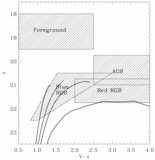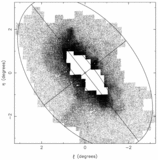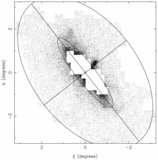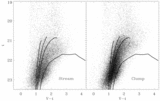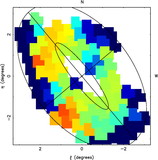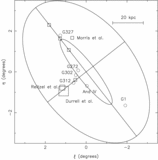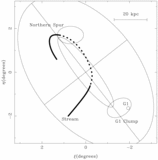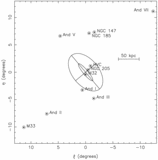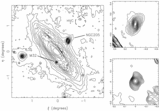Image Details
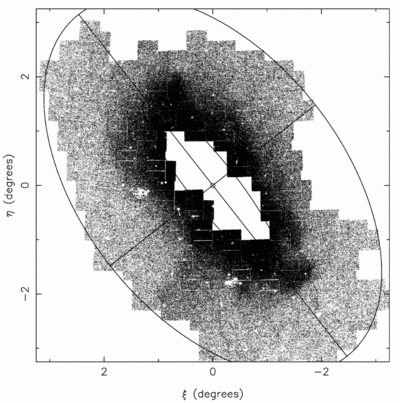
Caption: Fig. 2.
Left: Standard coordinate projection of the surface density of blue RGB stars across our current ≈25 deg2 survey area. The inner and outer ellipses are drawn assuming a position angle of 38﹩\fdg﹩1, derived from analysis of the light distribution on a scanned Palomar Sky Survey plate. The outer ellipse denotes a flattened ellipsoid (aspect ratio 3:5) of semimajor axis length 55 kpc and indicates the current spatial extent of the survey. The inner ellipse has a semimajor axis of 2°(≈27 kpc) and represents an inclined disk with i = 77.5; the optical disk of M31 lies well within this boundary. The few white blotches indicate regions contaminated by saturated stars. The dwarf companions M32 and NGC 205 lie at (0°, −0﹩\fdg﹩4) and (−0﹩\fdg﹩5, 0﹩\fdg﹩4), respectively. Much substructure is seen at large radii, including the giant stellar stream and stellar overdensities at both extremes of the major axis. No corrections have been made for foreground or background contamination. Right: Same as (left), except showing the surface density of red RGB stars. Note the lower Galactic foreground contamination on this map. Comparison with the projection on the left clearly indicates that the morphology of the substructure varies as a function of color.
Copyright and Terms & Conditions
© 2002. The American Astronomical Society. All rights reserved. Printed in U.S.A.


